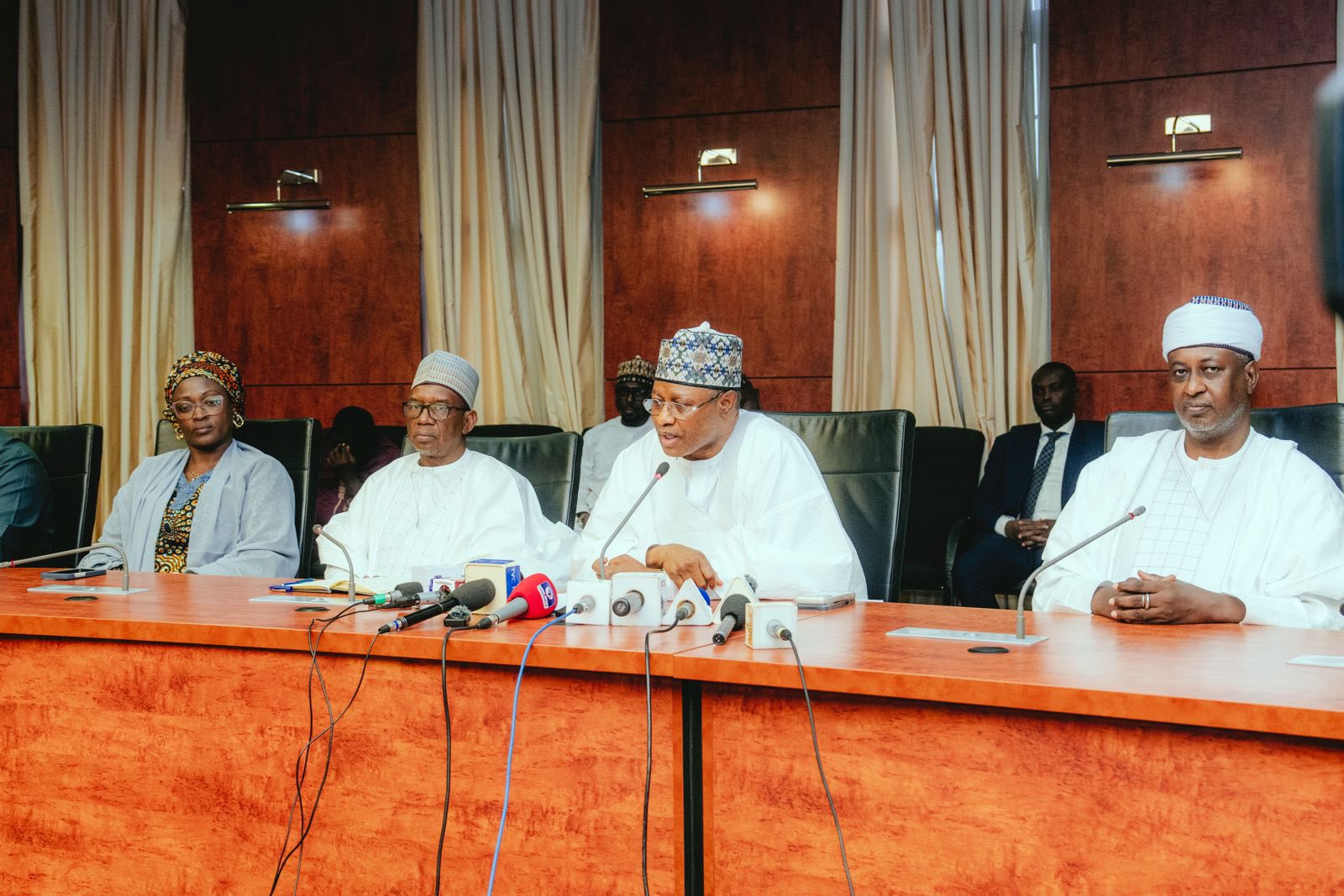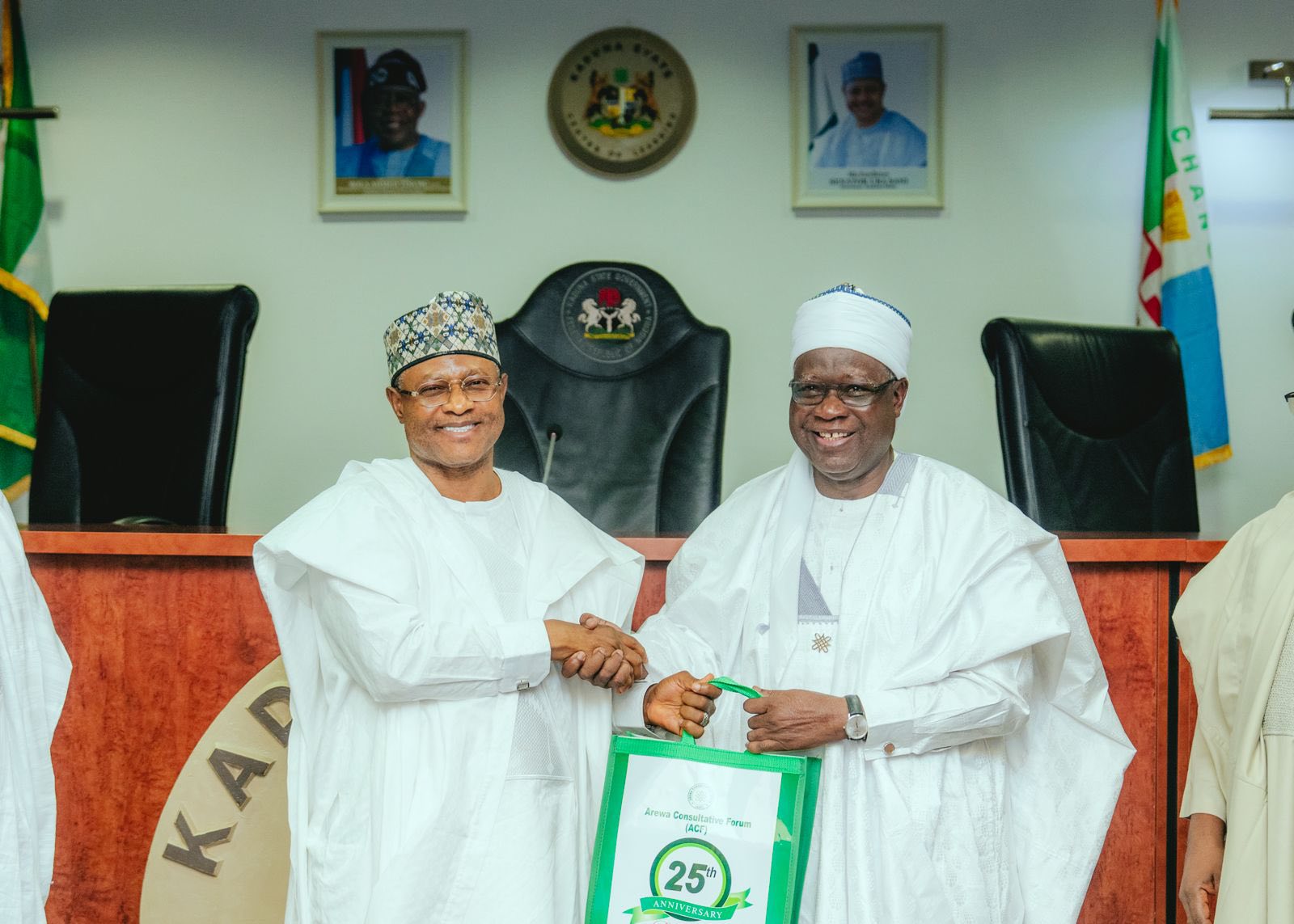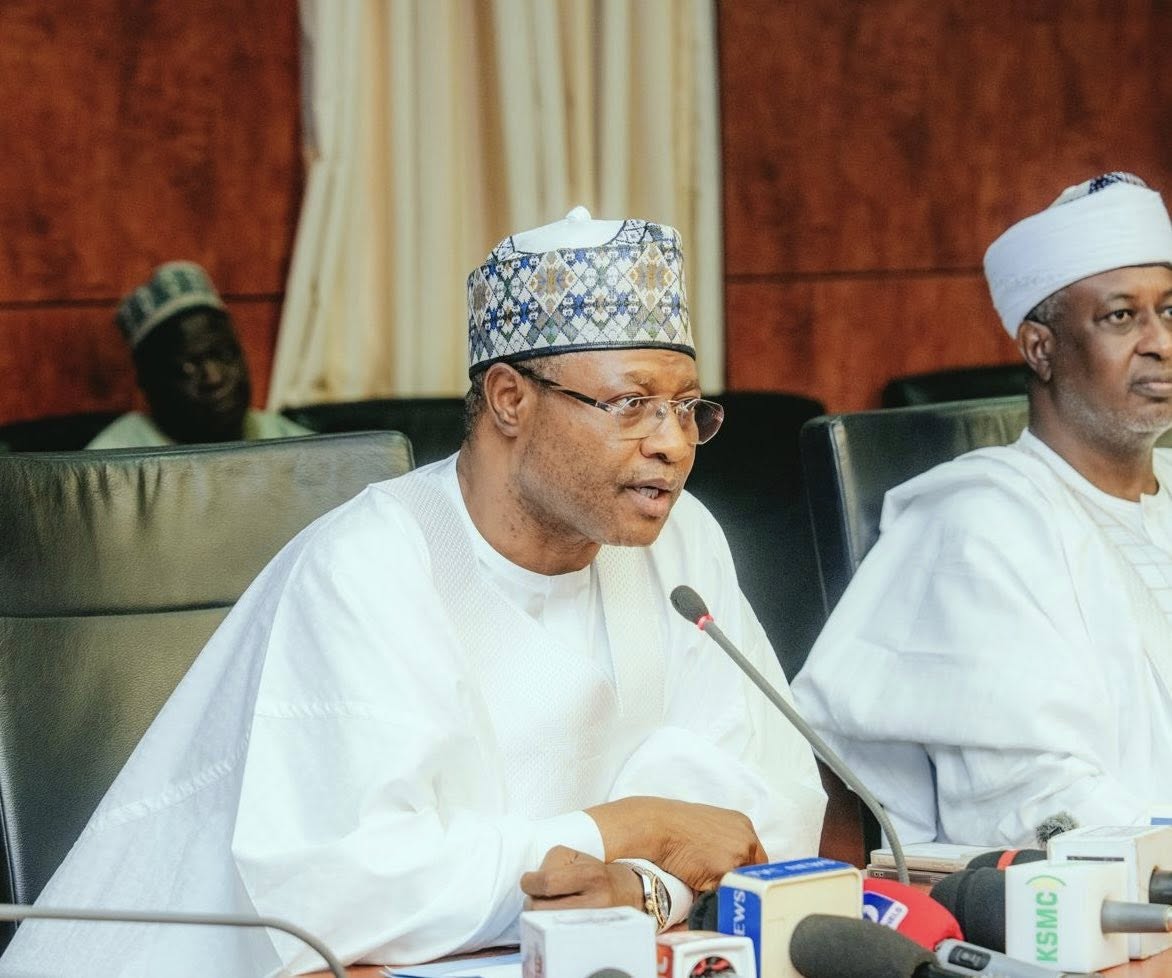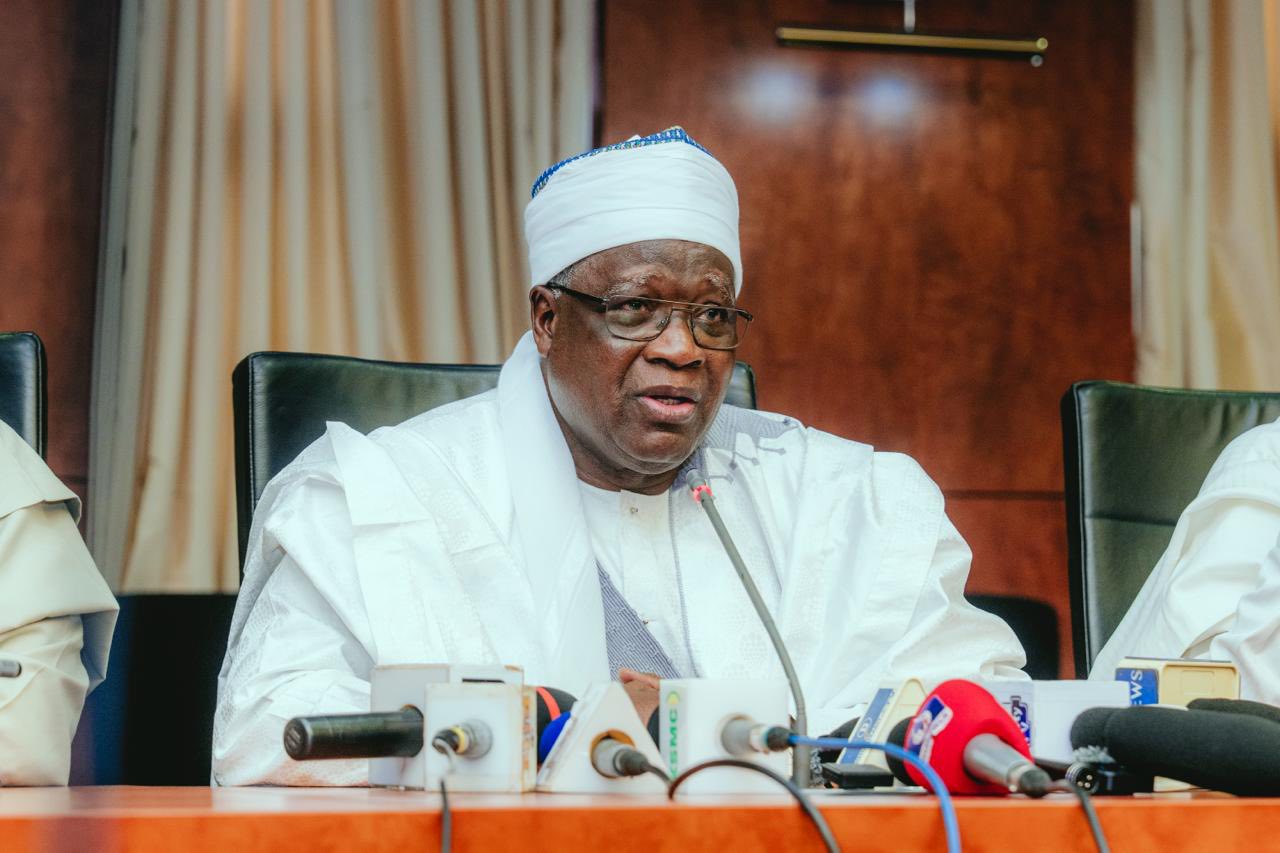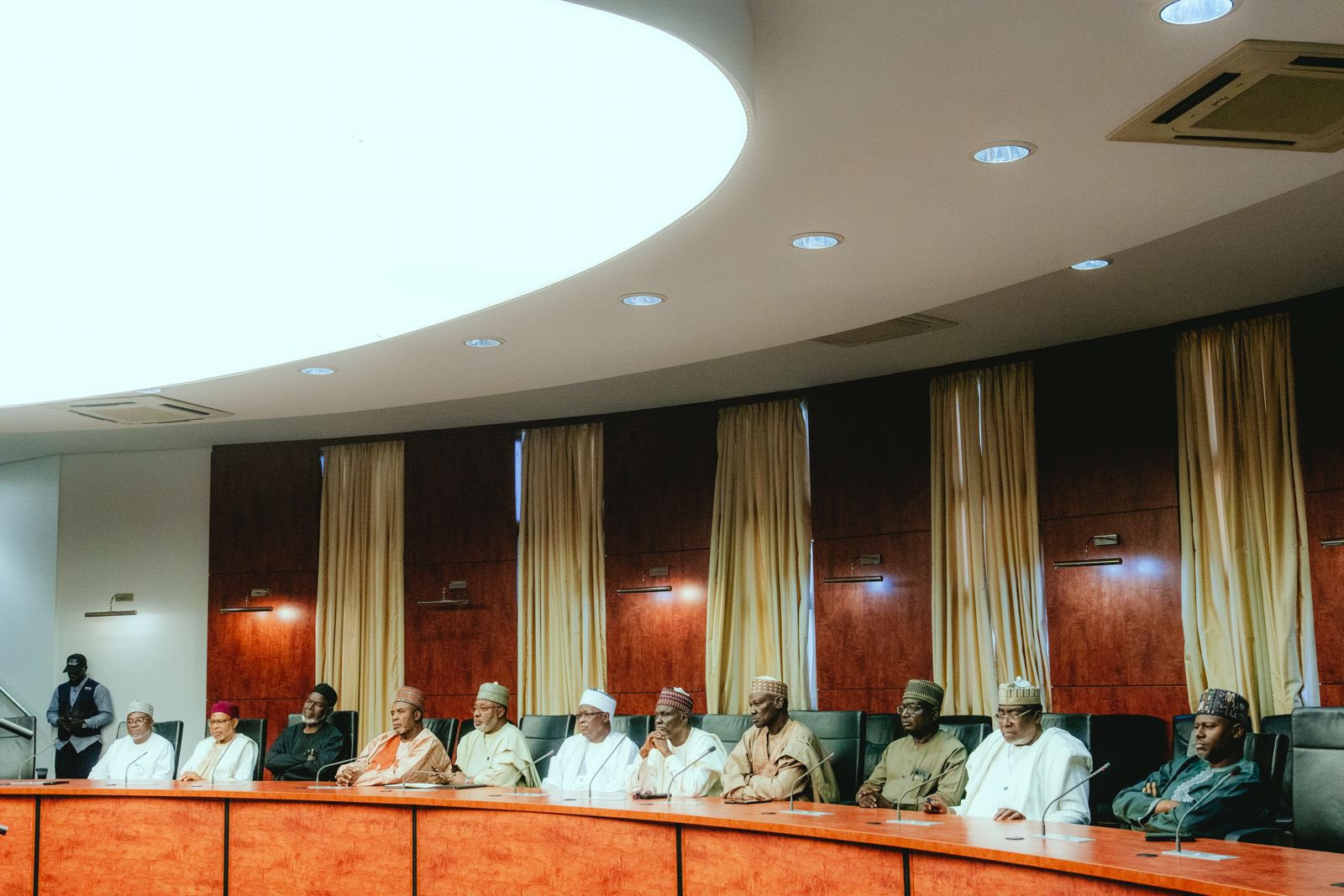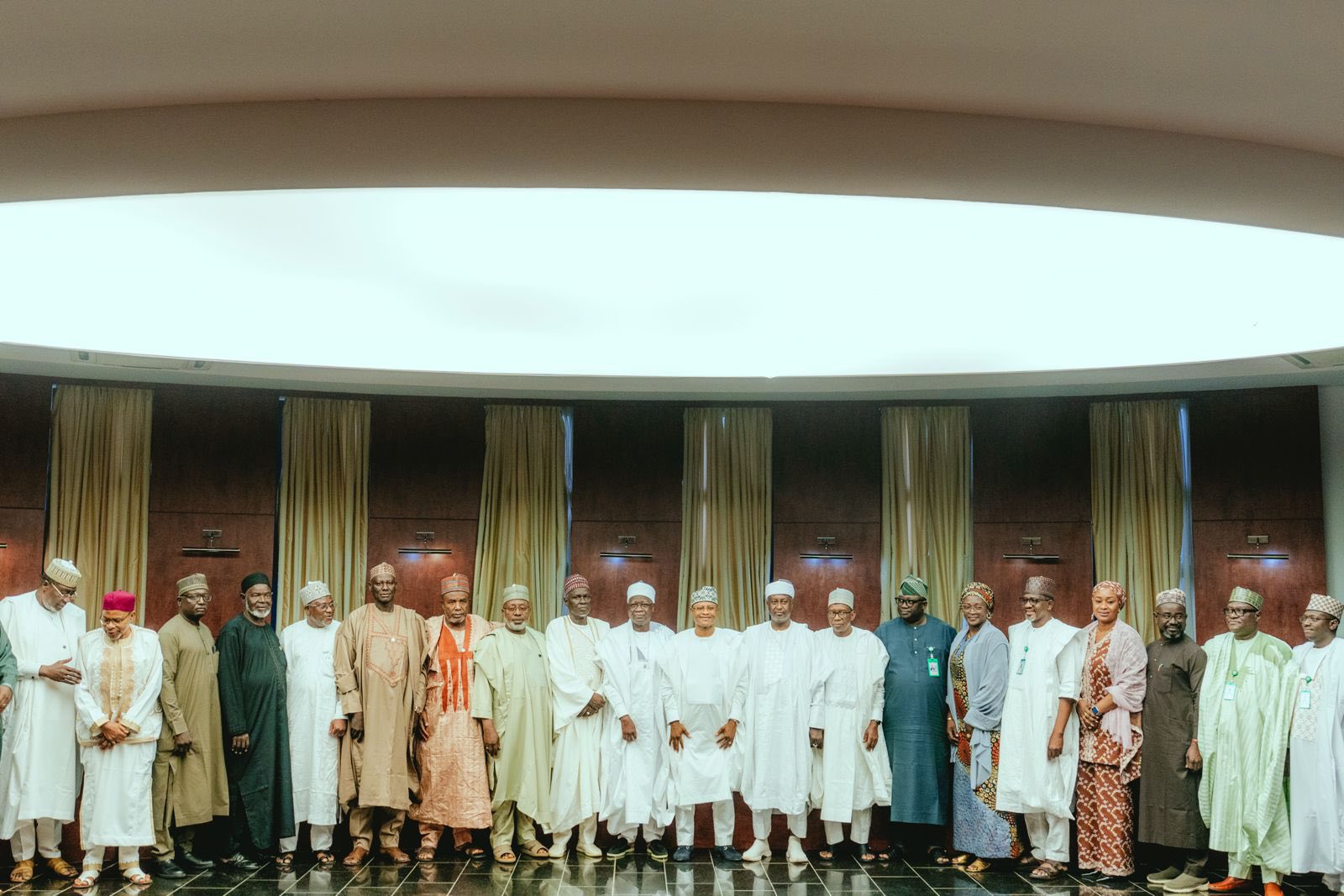PHOTOS: Uba Sani meets Arewa Consultative Forum leaders in Kaduna
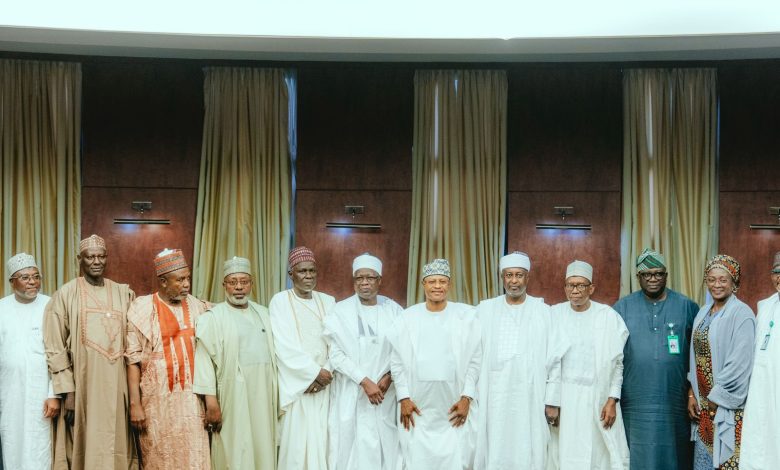
Uba Sani, governor of Kaduna, on Saturday hosted leaders of the Arewa Consultative Forum (ACF) at the Sir Kashim Ibrahim House, where discussions focused on strengthening regional cooperation and accelerating development across northern Nigeria.
The delegation was led by Bashir Dalhatu, the ACF board of trustees (BoT) chairman, who said the visit was to commend the administration’s governance approach and to brief the governor on the forum’s activities, including its forthcoming 25th anniversary.
Sani said he was honoured to receive the delegation, describing the meeting as “thoughtful and forward-looking”.
He said their engagement underscored shared priorities around inclusive governance, rural transformation, social reconciliation, and policies aimed at supporting vulnerable groups.
The governor welcomed the ACF’s acknowledgment of the state government’s support in securing the forum’s national headquarters in Kaduna, calling it “an important institutional anchor for Arewa’s collective voice”.
He also expressed appreciation for being named chief host of the ACF’s 25th anniversary celebration scheduled to hold in Kaduna.
The forum has invited President Bola Tinubu as special guest of honour for the milestone event.
Sani encouraged the forum to continue deploying its “moral authority and intellectual depth” to promote peace, unity, and sustainable development in the region.
He reiterated that the Kaduna state government remains open to partnerships with regional stakeholders committed to strengthening social cohesion, improving stability, and advancing the prosperity of northern Nigeria and the country as a whole.
